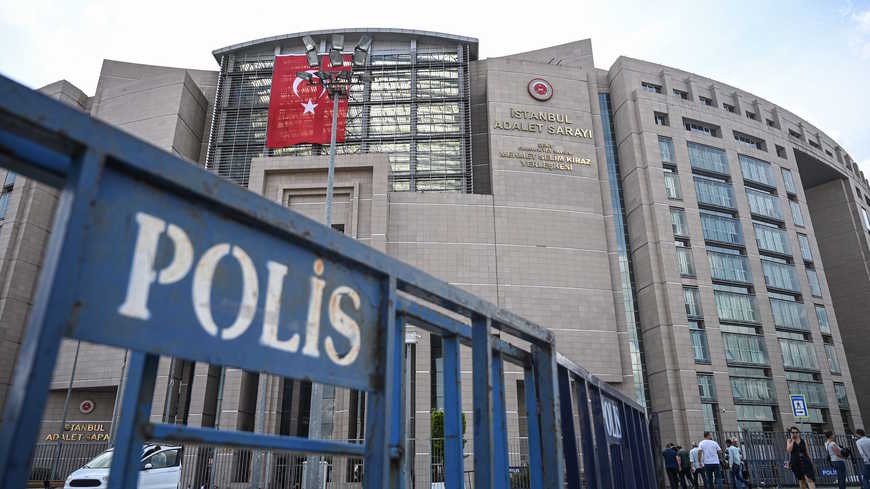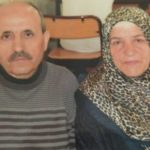The death by suicide of a 17-year-old boy Feb. 19 in a juvenile prison in Istanbul has reignited allegations of ill treatment of minors under police detention and government pressure on the judiciary, even as President Recep Tayyip Erdogan claimed this week that there is “zero tolerance” for torture in Turkey.
Turkish authorities say Kadir Aktar used a bedsheet and blankets to hang himself in his cell a day after he was arrested in connection with an attack on an individual in July 2020. The boy’s family is demanding an immediate investigation, saying his death is “suspicious.” Aktar’s lawyer, Ahmet Atalay, who was present at the boy’s autopsy, said its findings indicated that internal bleeding had occurred in his arms and legs. This in turn pointed to the possibility that he had been beaten. Aktar was being held in solitary confinement in keeping with COVID-19 protocols, and there was no surveillance camera in his cell, Atalay said.
Allegations of torture are not new in Aktar’s case. His case was publicized by Human Rights Watch last year following his arrest along with two other minors on July 18 for their alleged role in the shooting death of a police officer. Aktar told Atalay that he was taken to a room in Istanbul’s Bagcilar police station where the police “kicked and punched him in the face several times and bounced his head against the walls like a ball.” Photos showing Aktar with caked blood were posted on Twitter by anonymous accounts. They were allegedly taken by policemen boasting of their exploits.
Police formally claimed that Aktar’s blows were self-inflicted as he resisted arrest and hit his head and body against the walls. Lawyers who saw Aktar undressed said he “had a split eyebrow, bruises on his head and long red stripes on his back, consistent with beating with a cable,” Human Rights Watch reported.
Atalay told Al-Monitor there was “zero” evidence to support claims that Aktar was involved in the police officer’s death. He was freed Feb. 16 pending trial. Aktar’s father, Cengiz, was quoted by Evrensel, a left-leaning opposition newspaper, as saying, “I spent the night with my son after he was freed. My son wasn’t inclined to suicide. His mood was good. ‘Father I have grown taller. I’ve put on weight. I have facial hair now,’ he told me.”
“We are extremely concerned about this case because we followed earlier allegations of torture against Aktar,” said Emma Sinclair Webb of Human Rights Watch. “Over the past five years [since the failed 2016 coup against Erdogan] we have received many complaints of torture,” Sinclair-Webb told Al-Monitor. “But there are huge problems in investigating the allegations. There are medical examinations that should help deter torture or allow doctors to record ill treatment. But police are finding ways to hide evidence. There’s a huge slackening of the rules,” she added.
The day after Aktar was freed, the police came to take him in again, this time for his alleged role in a knife attack on an individual that took place on July 16, 2020, a day before the shooting of the police officer. Again, there was “zero evidence” against his client, Atalay said.
Yet Aktar was remanded in custody “despite having been freed pending bail in a far more serious case. Why?” Atalay asked. Atalay won’t say so openly, but prosecutors may have been acting under pressure from the authorities because the case involved a slain police officer. The officer’s widow insists that all three minors who were charged and freed pending trial in the case were guilty. She has called on Interior Minister Suleyman Soylu to have the trio re-arrested. “I don’t come here to watch them be freed. I come here to watch them be punished,” she said following the Feb. 16 hearing.
The police force is attached to the Ministry of Interior. Soylu is an unabashed Turkish nationalist who is leading the ongoing crackdown on the pro-Kurdish Peoples’ Democracy Party. Thousands of its members and supporters have been prosecuted and jailed on thinly evidenced terror charges. According to Atalay, Aktar was not political. But he was a Kurd, making him guilty by default in the current climate.
When Atalay went to see the boy Feb. 18, it was obvious he had been beaten. “He seemed different this time. Subdued. Yet he wasn’t the kind of person who would take his own life. We don’t know what happened between the time of his detention and the time of his death. We demand to know, for justice to be served,” he said.
On March 2, Erdogan unveiled an 11-point action plan that is supposed to bolster freedoms and improve the judicial system in areas including the trials of minors. A committee to monitor rights violations in prisons will be established.
Critics greeted the announcement with deep skepticism, with many noting that if Erdogan were sincere his first order of business would be to advocate freeing prominent philanthropist Osman Kavala and Kurdish leader Selahattin Demirtas, both of whom are being held on a cocktail of outlandish terror charges.
Instead, he’s done the opposite, telling the European Court of Human Rights — which has ruled that both men be freed — to mind its own business.
“This [reform] package amounts to a confession by the government that human rights are currently not being respected,” said Cigdem Ertak, a lawyer specializing in minors’ rights and who is also the secretary-general of the advocacy group Migration and Humanitarian Aid Foundation. “If the government implemented existing laws and the international conventions by which it is bound, there would be no need for such a package,” she told Al-Monitor. “Children are not just being violently assaulted by security forces under detention, but [also] out in the open, on the streets, in full view of the public,” she added.
Ertak recalls a case of police violence against three minors in the mainly Kurdish southeastern province of Van who were accused of taking part in a February 2019 demonstration in support of the jailed Kurdish rebel leader Abdullah Ocalan. The boys, who were 14, 16 and 17, respectively, at the time were savagely beaten en route to the police station. Police repeatedly clubbed them and kicked and punched them in the back and the head. Upon arrival, the boys said they had been blindfolded and that hard metal objects that felt like bullets and hand grenades had been placed in their hands.
“They plunged my client’s head in the toilet bowl while raining curses and threats on him,” said Naci Duman, who is representing one of the boys. The lawyer insists Orhan Duman, now 17, is innocent. He was so traumatized that he remained mute for months. He now has a permanent stutter and had difficulty defending himself in court during an initial hearing that took place last month.
None of the boys has previous records. They face between five to 26 years if convicted as charged.
Duman predicts that an ongoing investigation against the officers accused of torturing the boys will likely be shelved.
By: Amberin Zaman
Source: Al-Monitor


